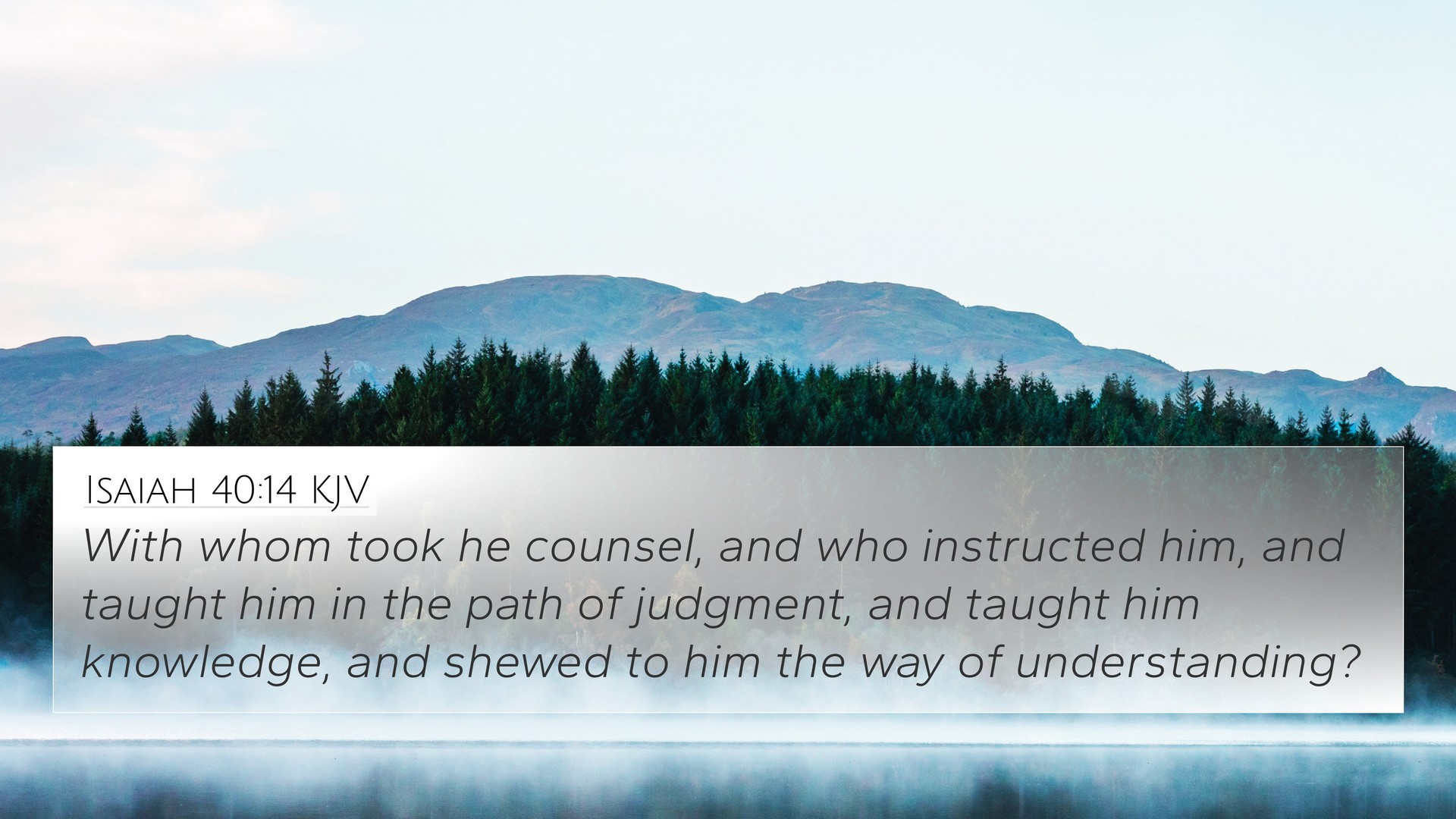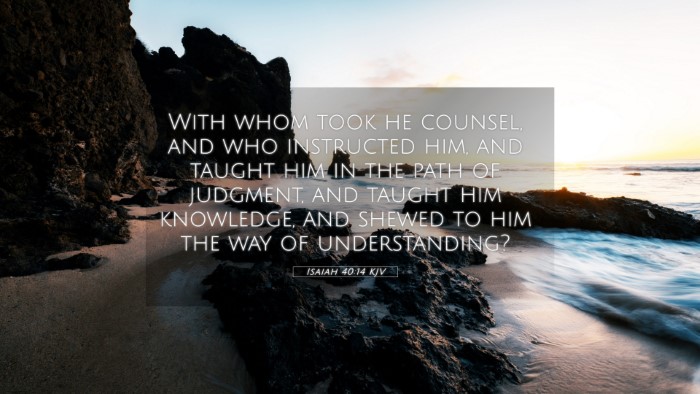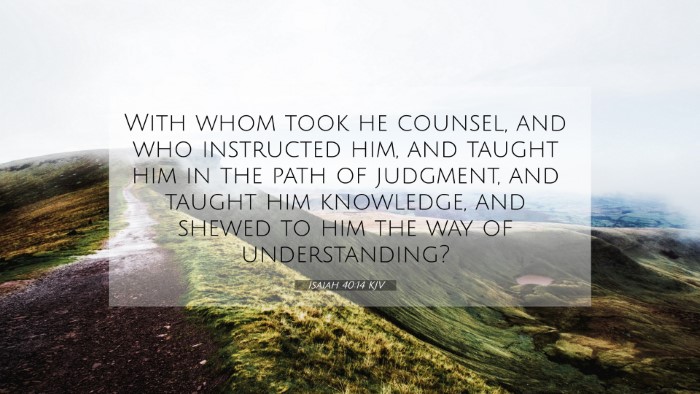Understanding Isaiah 40:14
Isaiah 40:14 states: "With whom took he counsel, and who instructed him, and taught him in the path of judgment, and taught him knowledge, and showed to him the way of understanding?” This verse stands as a profound reflection on God's omniscience and the incomparable wisdom that defines His nature. The key themes here revolve around God’s sovereignty, wisdom, and the futility of human attempts to comprehend His majesty.
Exegesis and Interpretation
The prophet Isaiah is addressing the people of Israel, emphasizing God's unique position as the Creator and Sustainer of all things. Matthew Henry comments on the absurdity of thinking that God would require counsel from anyone, asserting that His judgments are beyond human understanding. Albert Barnes adds that this verse illustrates the idea that God's wisdom cannot be matched or improved by human insight, thus reinforcing the belief in the divine's authority over human affairs.
Key Themes
- God's Unmatched Wisdom: Isaiah portrays the notion that God is the source of all wisdom and understanding.
- The Futility of Human Counsel: It questions the need for human wisdom in the guidance of divine will.
- God's Sovereignty: Reinforces the concept that God alone directs the affairs of the universe without needing external advice.
Cross-References to Isaiah 40:14
In seeking a deeper understanding of Isaiah 40:14, we find several cross-references that enhance the meaning of this verse:
- Job 15:8: Questions whether Job was present when God’s wisdom was established.
- Psalms 147:5: Declares God's understanding is beyond measure.
- Romans 11:34: Indicates that no one has given counsel to God.
- 1 Corinthians 1:25: Highlights the foolishness of God being wiser than men.
- Proverbs 3:5-6: Encourages trust in the Lord over understanding one's own pathways.
- Isaiah 55:8-9: Explains God's thoughts and ways are higher than those of humans.
- Jeremiah 10:12-13: Affirms God's creative power and wisdom in all His works.
Connections Between Bible Verses
When examining Isaiah 40:14, it becomes evident how interconnected the Scriptures are. The theme of divine wisdom is echoed in other passages. For instance, James 1:5 speaks on asking God for wisdom, implying that true understanding derives directly from Him. The connections between the verses serve as a reminder of the continuity in God's message about His infinite wisdom and the limitations of human understanding.
Comparative Bible Verse Analysis
A comparative study of Isaiah 40:14 with Proverbs 8:14 illustrates the nature of wisdom as personified, affirming that true counsel and sound judgment originate with God alone. In Ecclesiastes 12:13-14, the conclusion of matter emphasizes reverence for God and obedience to His commandments, reflecting the response humanity should have in light of God's profound wisdom.
Tools for Bible Cross-Referencing
Studying Bible verses in relation to one another can greatly enhance understanding. Tools such as a Bible concordance or a cross-reference Bible study guide can be invaluable for diving deeper into scriptural connections. These resources allow for an extensive examination of thematic connections and provide the framework for a structured approach in understanding the intertwining of biblical texts.
Practical Application
Recognizing God’s wisdom as laid out in Isaiah 40:14 invites believers to approach their own lives with humility, seeking divine guidance through prayer and scripture study. Acknowledging that human wisdom is finite encourages a dependency on God's infinite knowledge in decision-making and life challenges.
Conclusion
Isaiah 40:14 serves as a powerful reminder of God's unparalleled wisdom and understanding. It encourages believers to reflect on their own sources of guidance and to seek out the profound truths found within God's Word. The passage invites an ongoing exploration of how scripture interconnects, enriching our faith and knowledge as we engage with God's word through thoughtful cross-referencing and thematic studies.






